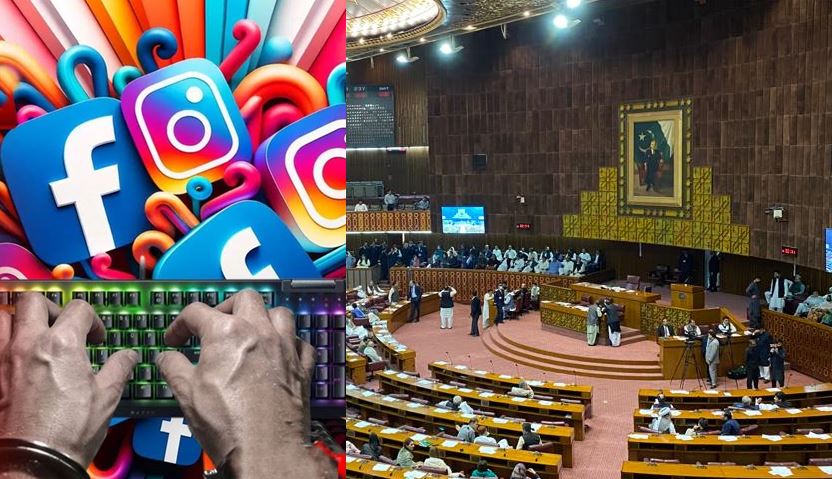ISLAMABAD – Lower House of Parliament approved the contentious Prevention of Electronic Crimes (Amendment) Bill, 2025, paving the way for a punishment of up to three-year imprisonment to any person found guilty of spreading misinformation, inciting violence, or spreads anarchy.
Amid the walkout of opposition and opposition, National Assembly approved an amendment to the country’s cybercrime laws. Law Minister Azam Nazeer Tarar tabled the bill in what is said to be the latest push to regulate online content, specially the menace of fake news.
With the amendment, Section 26(A) imposes stern penalties on those found guilty of peddling false information that could cause public panic or unrest. Lawbreakers could land in jail for 3 years in prison, along with fine of up to Rs20lac, or both. The amendment sparked controversy, with critics claiming it could be used to muzzle freedom of expression and could further corner the freedom of press which is already facing plethora of issues in recent years.
Social Media Protection and Regulatory Authority will be formed with task to regulate social sites. The authority would have the power to block or remove content deemed harmful, including material that contradicts Pakistan’s national ideology, incites violence, or spreads misinformation. Social media platforms would be required to register with the authority and comply with its guidelines.
Meanwhile, journalists staged a walkout from the press gallery during Thursday’s session, while the opposition also voiced strong objections. The proposed changes are part of a broader effort by the government to combat misinformation and ensure stricter oversight of online content. However, critics argue that the bill could undermine freedom of expression and lead to censorship.
The bill now moves to the standing committee for further review, with concerns about its impact on media independence and online speech continuing to fuel the debate.
The country’s press freedom also moved down in 2024 World Press Freedom Index, dropping to 152nd place from 150th last year. RSF also pointed out ongoing struggle between press freedom and the control over media. As the country’s media became more diverse after 2002, privately owned outlets are financially dependent on state run ads, which often leads to editorial influence and censorship.
Ruling alliance support press freedom but fail to defend it once in power due to control by deep state. The country of 242 million is considered one of the most dangerous countries for media workers, with regular cases of violence against the press.









